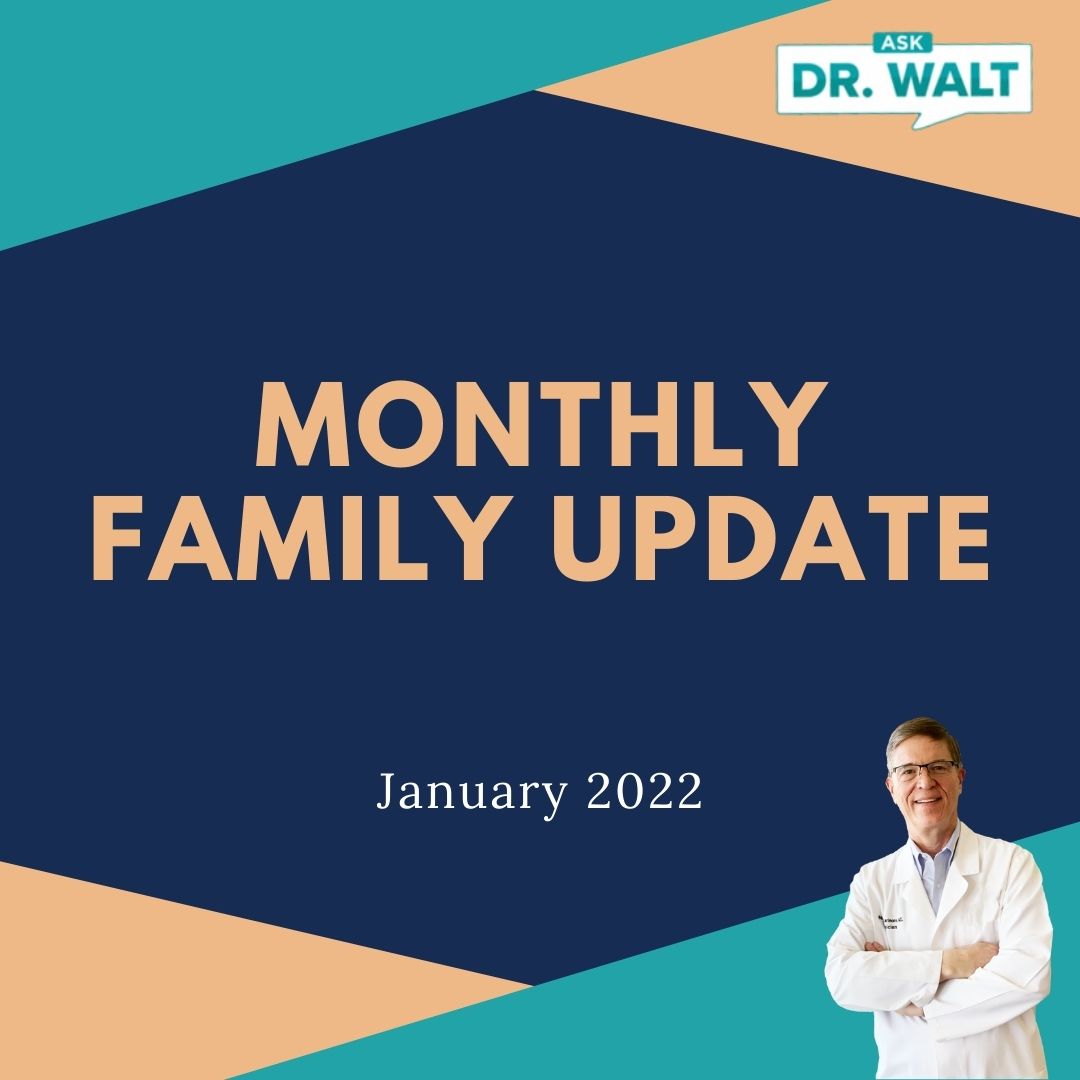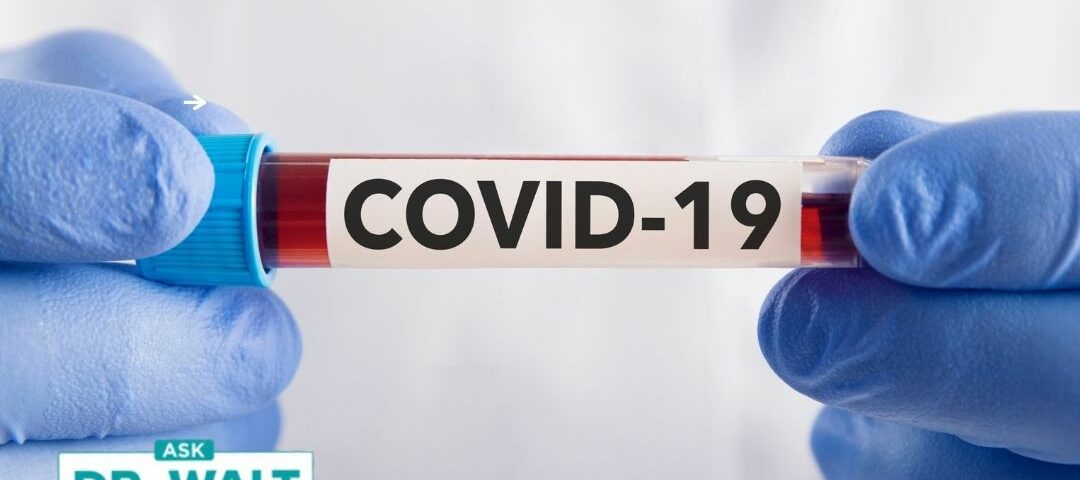
Monthly Family Update – January 2022
January 1, 2022
6 foods to eat to live better and longer
January 4, 2022I’ve written before about the truth behind all the rumors and myths surrounding using Ivermectin to prevent or treat COVID. But many questions still arise about it’s use. So, here’s an update:
A July 2021 review from the Cochrane collaboration — long considered the gold standard in medical research — concluded that ivermectin should not be used for the treatment or prevention of COVID-19 outside of well-conducted clinical trials, which is a stark contrast to the hundreds of millions of doses still being taken for those exact reasons.
Back in September, 2021, the American Pharmacists Association and American Society of Health-System Pharmacists have joined the American Medical Association (AMA) to release a statement that strongly opposed the ordering, prescribing or dispensing of ivermectin to prevent or treat COVID-19 outside of a clinical trial.
In addition, the Centers for Disease Control and Prevention (CDC) issued a health advisory warning physicians and the public about the rise in prescriptions for the anti-parasitic drug ivermectin for use in the treatment or prevention of COVID-19. The CDC also cautioned about the risk of severe illness caused by ivermectin, which was seen in increased calls to poison centers.
In December, 2021, the Food and Drug Administration (FDA) echoed the CDC’s warning against the use of ivermectin for prevention or treatment of COVID-19. Additionally, the National Institutes of Health’s (NIH) COVID-19 Treatment Guidelines Panel determined that there is insufficient evidence and data to recommend ivermectin for treatment of COVID-19.
These recommendations are all consistent with the Infectious Disease Society of America’s Guidelines on the Treatment and Management of Patients with COVID-19, which speaks against the use of ivermectin in hospitalized patients and ambulatory persons with COVID-19, outside of the context of a clinical trial.
The bottom line is that there is no reliable evidence to suggest that ivermectin can be used to successfully prevent or treat COVID-19 infection.
“Clinical trials and observational studies to evaluate the use of ivermectin to prevent and treat COVID-19 in humans have yielded insufficient evidence for the NIH COVID-19 Treatment Guidelines Panel to recommend its use,” the CDC health alert explains. “Data from adequately sized, well-designed and well-conducted clinical trials are needed to provide more specific, evidence-based guidance on the role of ivermectin in the treatment of COVID-19.”
Why this is important: For months, different news and social media outlets have talked about ivermectin being used to treat COVID-19. It has also been a popular topic on Twitter and was even touted as a miracle drug. But this is not the case. While ivermectin is an FDA-approved prescription medication used to treat certain infections caused by internal and external parasites, it is not authorized or approved for prevention or treatment of COVID-19.
Taking a drug for an unapproved use can be very dangerous and misinformation that says it is OK to take ivermectin for COVID-19—or in large doses—is wrong, the FDA consumer update warns. Even approved levels of ivermectin can interact with other medications. Overdose of ivermectin can also cause nausea, vomiting, diarrhea, hypotension, allergic reactions, dizziness, ataxia, seizures, coma and even death.
And when it comes to animal formulations of ivermectin and other medicines, they are highly concentrated because they are intended for use in large animals such as horses and cows, says the FDA’s consumer update. That makes these veterinary medicine formulations extremely toxic in humans.
The most effective ways to limit the spread of COVID-19 are to get vaccinated, wear a face mask, stay at least six feet from others in public places, wash hands frequently and avoid large crowds of people. Discover eight coronavirus tips that doctors wish patients would follow.
And, if anything changes on the true science about drugs or supplements for COVID treatment or prevention, I’ll be sure to let you know!
© Copyright WLL, INC. 2022. This blog provides healthcare tips and advice that you can trust about a wide variety of general health information only and is not intended to be a substitute for professional medical advice, diagnosis, or treatment from your regular physician. If you are concerned about your health, take what you learn from this blog and meet with your personal doctor to discuss your concerns.




2 Comments
Walt, I am very sad to see you weighing in in opposition to a key component of early safe, 85% effective multiple repurposed drug (ivermectin or hydroxychloquine) combined withe nutraceuticals as per Dr Peter McCullough. He is the world’s most published in his specialty area and CoVID, as well as having had CoVID himself and treated hundreds of high risk patients with it. His and other sources (AFLD, AAPS, Truth for Health Foundation, etc, have amply documented this. You are obviously unaware that the Cochrane formerly reliable source has been compromised, as well as the CDC, which holds over 40 patents related to CoVID.
Please read Peter McCullough, Joe Mercola, and Bobby Kennedy’s public writing and speaking to understand the misinformation by which you have been misled
Bose,
I’ve read McCullough, Mercola, and Kennedy As well as AFLD, AAPS, and TFHF. You’ve sent me all of their information. When I weigh the two sides, I come down on the side of Cochrane, ConsumerLab.com, the Natural Medicines Comprehensive Database, etc. I also believe Dr. O’Mathuna’s review and the organizations I cited and referenced as being trustworthy and reliable. You obviously don’t. I know you and I believe you are sincere. I just believe you are sincerely wrong. As I’ve told you in other communications, however, time will tell, eh!?!? And I appreciate that despite our disagreement (which has been agreeable) that I can and do still call you friend.
Walt